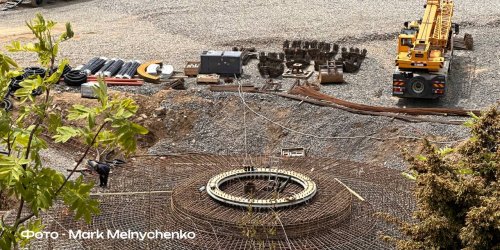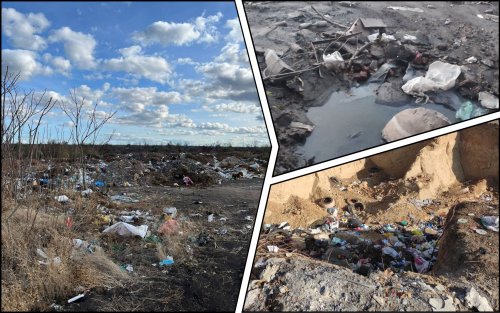The reform of environmental control in Ukraine, in particular elimination of corruption in the State Environmental Inspection and its restart, will allow to build new conditions for business and attract foreign investments.
This was told by the legal adviser of the Committee of Industrial Ecology and Sustainable Development of the European Business Association, Asters adviser, head of the practice of Construction, environmental protection and sustainable development Anzhelika Livytska, informs Mind.
She explained that the State Inspectorate, despite the war, continues to monitor and report on the amounts of claims and lawsuits presented for payment to violators. However, business has always been skeptical of eco-inspector inspections, in particular due to lack of transparency and accusations of corruption.
"Although environmental problems may seem secondary against the background of the suffering that the war brought to Ukrainians, ecologists are already warning about the inevitable negative consequences for the environment for decades to come," the lawyer said.
The State Ecoinspection actively helps assess environmental damage and eliminate its consequences.
Livytska emphasized that instead of a purely control function, issues of proper disposal of war waste, recording of environmental crimes committed by the Russian troops (ecocide, pollution, destruction of natural systems and infrastructure facilities, such as dams, leading to catastrophic consequences for the environment) came to the fore natural environment, significant mining of territories), prosecution of persons who, even in wartime, commit offenses related to the illegal use of natural resources (illegal logging, fishing, etc.).
Complaints from business
The lawyer emphasized that in addition to the negative consequences of the war, in particular environmental ones, which will have to be eliminated taking into account the principles of the European green course and the use of advanced environmental tools, a large-scale reform of state environmental control must necessarily take place in Ukraine.
"Unfortunately, historically, the State Inspectorate, due to its broad powers, has been one of the levers of pressure on business. According to the study of the business climate in the regions, in recent years the State Environmental Inspection has received the most complaints from businesses. Therefore, the main focus of the reform is to eliminate corruption and increase the efficiency of the body's work, including its restart," she said.
Changes in the state eco-control system are necessary
Members of the European Business Association proposed a number of aspects that should be taken into account in legislative acts on updating state environmental control, including:
- recording and calculation of environmental damage;
- carrying out explanatory work and increasing interaction with business and local authorities;
- improving the efficiency of work by establishing the level of appropriate requirements for candidates for the positions of inspectors, liability for business damage caused by official negligence or abuse of authority;
- introduction of EU standards during the implementation of the control function to the model of business support and transparent interaction with business;
- development of the practice of voluntary environmental audits and environmental insurance, which should facilitate the transition from a control to a monitoring approach in the field of state environmental regulation;
- exclusion of duplication of functions of the state environmental control body with other control bodies.
"According to the results of the latest survey of the European Business Association, despite the massive rocket attacks, 83% of business respondents are ready to participate in the post-war reconstruction of the country, although as recently as April there were 67% of such respondents. And our task now is to build such business conditions that would allow us to attract foreign capital and improve the investment image of post-war European Ukraine," Livytska stressed.
As EcoPolitic reported previously, the reform of the state environmental control system, which was launched in 2017 still remains unfinished.





